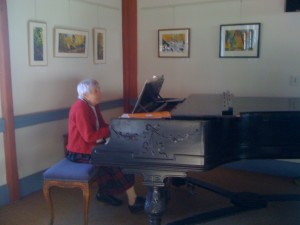There’s another question that has been nagging me this summer: Why travel?
Perhaps I don’t have to convince readers of this blog of the value of travel. There are already a gazillion blogs on the topic, offering 10 or 13 or 17 or 25+ reasons to leave the comfort of our homes.
But why get on a jet plane and add to my already over-sized carbon footprint on this planet?
My perspective on international travel has changed a lot since I first applied to be on the Fulbright Specialist Roster six years ago (which led to my travels this summer). Climate Change seems so much more real.
The pandemic also helped me to see that the Internet can connect us more genuinely than I initially gave it credit for.
But I think we learned during the pandemic that while we can connect and learn about the world through the world wide web, virtual is not all we wish for, or need.
We can’t look into each other’s eyes on Zoom, since the camera misdirects our gaze. We can’t walk or sit together or have the myriad other small ways of getting to know the way people think and move and have their beingness in the world. We can’t experience the interplay of culture and human-made environments with local trees, parks, waterways. We miss the smell and taste and vibes of a place.
Just as when I was looking for reasons (not to) blog, I scoured the internet about socially conscious ways to travel. I took inspiration from academics who are re-thinking the ways we move about the world.
I decided to name my own commitments. This public declaration became the main point of this blog, after I cut away a whole bunch of other stuff (such as why I really believe in the power of travel to open minds, since minds can be opened in other ways as well). I’ll even number this list, and title my blog to accord with the genre of blogging, offering easy, enumerated lists of things.
(1) As much as possible, I will avoid traveling as a tourist or businessperson, only skimming the surface of a culture. I will use travel to build real and sustained relationships with people and places.
(2) I will pare back, but not eliminate travel. For example, I will aim to attend ONE or two conferences a year, rather than three or four.
(3) For every trip, I will pay into carbon-footprint off-setting programs, while keeping a critical eye on them, and trying to find programs that also work toward ecological justice. Like this one.
(4) I will strive for a “balanced portfolio” of in-person and on-line gatherings. I will think carefully about when it seems important to be in person, and when on-line is “good enough.”
(5) I will pack as much into a trip as possible, rather than taking multiple trips.
(6)I will take trains and public ground transportation whenever possible – even if it takes longer and costs more than flying. I’ll plan my time so I can work on the train, or the bus.
(7) I’ll share what I learn from my travels. Hence this blog. I will also take pleasure in seeing other people’s travel adventures, knowing that I may never go to those places myself.
(8) I’ll treat every trip as if it’s my last. As indeed, it could be. I will try to take in and appreciate everything I do and see. Which is a good way to live life as well.







